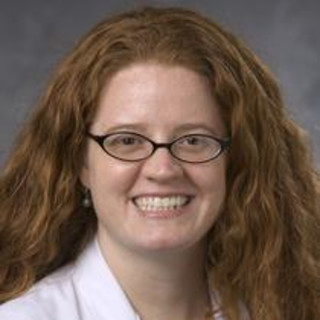 As doctors who bear witness to new life being ushered into the world as part of our job, it seems ironic that parents of young children were ushered out of the exhibit hall this year at our annual clinical meeting. Social media took the wheel and the rule which previously stated that children were not allowed was quickly changed. It begs the question, why was the rule there in the first place? I talked with Dr. Michelle Solone, Assistant Residency Program Director at Stanford and one of the parents removed from the exhibit hall by security along with her 6-month-old son. She told me “I was not asking to bring my baby to the OR, I was asking to bring my baby to the Exhibit Hall.” Unfortunately, she was not the only one ejected from the hall – other parents with children from one month to 14 months had a similar experience.
As doctors who bear witness to new life being ushered into the world as part of our job, it seems ironic that parents of young children were ushered out of the exhibit hall this year at our annual clinical meeting. Social media took the wheel and the rule which previously stated that children were not allowed was quickly changed. It begs the question, why was the rule there in the first place? I talked with Dr. Michelle Solone, Assistant Residency Program Director at Stanford and one of the parents removed from the exhibit hall by security along with her 6-month-old son. She told me “I was not asking to bring my baby to the OR, I was asking to bring my baby to the Exhibit Hall.” Unfortunately, she was not the only one ejected from the hall – other parents with children from one month to 14 months had a similar experience.
Obstetrics and Gynecology attracts the greatest percentage of women of any specialty, with more than 80 percent making up incoming intern classes. As a residency program director, I take great pride in this statistic. Our field cares for primarily women and is a welcoming place for women to train. Yet how we care for and promote women in medicine continues to lag, even in a specialty made up of predominantly women. As those residents become parents, either as trainees or early in their careers, it represents an awesome opportunity to support them.
My own experience as a physician mother in academic medicine brought the challenges of physician parenthood into clear focus. Building my family at a time critical to building my career created conflict between work and home. I was striving to be the best clinician and researcher, but also the best mom. I quickly realized “having it all” wasn’t possible, yet despite that realization, I experienced a huge amount of guilt at both home and work. Spending time away from a child that is developing at such an exponential pace is hard. When I went to my first scientific meeting as a new mom, my son was 14 months old. After being apart from him for three days, he stopped breastfeeding, which I knew was a potential consequence.
Parents want to bring their kids to scientific meetings for a variety of reasons. For many, especially busy Ob/Gyns, it represents a time when we’re not at work and we can spend some downtime with our kids. As a physician who takes a lot of overnight call away from my family, going away solo for a meeting seems like a luxury. For parents who are breastfeeding, it is very challenging to leave your child at home for 2–3 days to attend a meeting and keep up with breast milk supply or even have the assurance that they will still nurse when you return home. Some parents may be the primary caregiver. If meetings are not inclusive of children, those parents will never have access. By making a meeting uninviting for parents suggests to them that they should leave children at home, which may not be feasible financially or logistically. For Dr. Solone, allowing children at scientific meetings means “that the working parent does not have to choose whether to spend time with their child or advance their career via learning, teaching or networking.”
How do we learn from this experience and make next year’s meeting even more inclusive for parents? Invite new parents and breastfeeding parents to be a part of the planning committee. Make childcare available and either free or highly subsidized. Hold sessions on navigating work-life balance as a new parent. Supply hospital grade pumps for those producing breastmilk for their children at home. Make it acceptable to breastfeed anywhere and everywhere, not just the lactation room. Allow parents to bring strollers to meetings. Survey new parents for more ideas than the ones listed here. Ask the parents who didn’t attend the meeting what kept them at home. Be the progressive leader on this subject.
We have made great strides in our focus on the importance of the immediate postpartum experience and how critical the fourth trimester is for new parents. I would pose that we should extend our concern to the “fifth trimester” or the time when new parents are returning to work. How do we support those parents to have a successful re-entry? For some parents this involves navigating the stresses of nursing and pumping. For others, it means tackling the emotional response when you leave your child at home or daycare for the first time. It means altering the way things have always been to improve the lives of families.
Dr. Solone remarked on what an incredible community she found at the meeting saying, “So many strangers offered to hold him [her son] when I was eating, or setting up a table for the alumni event, or had to go to the bathroom.” As Ob/Gyns, our governing body must celebrate parenthood in the same way. We need to be the ones providing innovative ideas on how to make it possible for working physician parents to attend meetings. Let’s use this experience as a call to action to make our annual meeting more inclusive for parents and to be the thought leader on successfully navigating physician parenthood.
Dr. Bev Gray is an assistant professor and residency director at Duke Obstetrics and Gynecology. She is also the mom of a 3 and 6 year old. Follow her on twitter @DrBevGray.
Image by Lilipoayojo / Shutterstock







